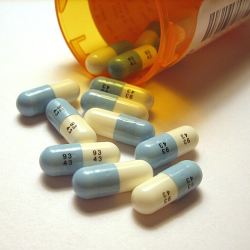Americans need assurance of the availability of approved drugs and medical devices in the marketplace so that healthcare providers have more reliable inventory, experience fewer shortages, and more choices when shortages arise. Reciprocity of regulatory decisions would help to achieve that.

From 1968 to 2019, Americans experienced a remarkable increase in life expectancy, from 70 to 79 years. Much of that was due to advances in drugs and vaccines. However, amany of them have become unavailable, and over the past four years, life expectancy has actually dropped. (At least some of this was probably due to the COVID pandemic.)
FDA Commissioner Robert Califf has called for Congress to give his Agency more power to tackle drug shortages. He admitted that the FDA can’t address underlying market conditions, but it can help to avert supply-chain issues if manufacturers let regulators know about problems.
However, it’s not the actions or inaction of the FDA that’s the problem, and Califf intimated as much by referring to the importance of market conditions. Congress could and should act to take advantage of market forces.
Congress has known for some time that the shortages of critical medications are worrisome and worsening. "These shortages, which reached a peak of 295 individual drugs in shortage at the end of 2022, have left health care professionals grappling with limited resources to treat patients in need," Senate Homeland Security and Governmental Affairs Committee Chairman Gary Peters (D-Mich.) said in introducing a committee report in March.
During a hearing of the House Energy and Commerce Health Subcommittee on September 14, members questioned generic drugmakers, distributors, pharmacists, and drug policy experts about various bills intended to reduce and mitigate future drug shortages, but it appeared that there was little progress toward workable remedies.
Shortages are vexing to practicing physicians. Dr. Deborah Greenhouse, a pediatrician in South Carolina, tweeted this on February 1:
OK pediatricians, I'm starting a new contest: Who can rack up the highest number of patient calls and texts in one day from parents who can't find a pharmacy with their child's #ADHD medication? I'm at 6 so far this morning. Do I win?
That followed a tweet of hers on the same theme last November:
Today: I tried to prescribe amoxicillin for an ear infection: The pharmacy didn't have it. I tried to prescribe Tamiflu for flu. The pharmacy didn't have it. I tried to prescribe Adderall for ADHD. The pharmacy didn't have it. If that doesn't bother you, it should.
It does bother me, and it has for a long time. These are essential drugs, and such shortages are neither new nor rare. Several years ago, University of Chicago researchers surveyed 719 pharmacists at large and small hospitals across the country and found that all of them reported experiencing at least one drug shortage in the previous year, and 69% had experienced at least 50 shortages in that time. The majority were generic injectable pharmaceuticals commonly used in hospitals, including analgesics, cancer drugs, anesthetics, antipsychotics for psychiatric emergencies, and electrolyte solutions needed for patients on IV supplementation.
The FDA maintains a current list of drugs that are currently in shortage. As of September 29, 145 drugs were on it, including two (amoxicillin and Adderall) mentioned by Dr. Greenhouse. The list includes much of the contents of the medicine cabinet of a hospital ICU or emergency room and many drugs used by paramedics.
Hospitals are scrambling to ensure adequate supplies of drugs that are in shortage or to find substitutes for them. In the University of Chicago study, one-third of hospitals had to ration medications at least once. That means that some patients, like those of Dr. Greenhouse, got the second or third choice of drug treatment, increasing the likelihood that the drug will be ineffective, suboptimally effective, or have unwanted side effects.
Based on questions posed to 29 of its 33 member hospitals, the National Comprehensive Cancer Network reported today (October 5) that 86% of those cancer centers are experiencing a shortage of at least one type of generic chemotherapy drug. The survey focused mainly on two platinum-containing drugs, carboplatin and cisplatin, that are used to treat multiple cancer types, including lung, breast, prostate, and gynecologic cancers, as well as many leukemias and lymphomas.
Much of this is preventable. In order to ameliorate drug shortages, we need a policy change that would enable overseas manufacturers to sell products in the U.S. that already have received marketing approval from certain foreign governments with standards comparable to those of the U.S. FDA, and vice versa. In other words, reciprocity: An approval in one country on the list would be reciprocated automatically by the others (subject to the creation of approved labeling in the appropriate format, language, and other formalities). That would afford drugmakers in those countries rapid access to the U.S. market, helping to alleviate our shortages and preventing future ones.
Reciprocity would ameliorate other problems as well, such as the FDA dragging its feet on the approval of important drugs and vaccines that have been given the green light elsewhere. For example, Bexsero, a vaccine to prevent meningitis B, was approved in 2013 by the European Union, Australia, and Canada but not by the FDA until 2015.
Another example was the long delay before the FDA’s 2015 approval of Fluad, a flu vaccine containing an adjuvant that boosts the immune response. It is used primarily in the elderly, whose immune response to flu vaccines typically is poor. Fluad has been used in Italy since 1997 and approved in more than three dozen countries. The 18‐year delay in availability in the United States undoubtedly caused many avoidable hospitalizations and deaths.
There is another unobvious problem that reciprocity could help. There have been attempts by senior FDA officials to invent new standards for drug approval in addition to the statutory requirements of safety and efficacy. For example, the Agency denied approval of a drug, Arcoxia (etoricoxib, a cyclooxygenase (COX)-2 inhibitor for the relief of arthritis pain), because, they said, it needed to be shown to be superior to existing drugs to obtain approval. Such wandering off the reservation would be neutralized by reciprocity of approvals.
The stage is set for such an advance. The United States has been a leader in the deliberations of the International Conference on Harmonization of Technical Requirements for Registration of Pharmaceuticals for Human Use, which has led to harmonized standards among the FDA and its foreign counterparts. These countries now have a standardized dossier for seeking approval of new drugs, the U.S. accepts research conducted in other countries to support applications for the approval of new drugs and medical devices, and the FDA has established Current Good Manufacturing Practices for foreign production facilities. Thus, we’re already part of the way there.
Although reciprocity of regulatory approvals of drugs would be a significant advance, it would create some dilemmas. For example, what happens to trials underway that were intended to obtain FDA approval if they were preempted by approval in a "reciprocating country?" Would the sponsor stop them? Similarly, what happens to a pending New Drug Application submitted to the FDA if a reciprocating country approves the drug? (On average, the FDA review takes more than two years.)
Finally, would drug companies stop filing applications for approval in the U.S. entirely and simply go to regulators in one or two of the reciprocating countries considered "easier” or faster? And if so, would that be good or bad for American consumers?
Admittedly, not all drug shortages would be addressed by reciprocity of approvals. The Senate report found that part of the problem is that 90% to 95% of generic sterile injectable drugs, heavily represented on the FDA’s shortage list, depend on starting materials from China and India. When he introduced the Senate report in March, Senator Peters warned that the U.S.'s over-reliance on foreign suppliers, especially those in China, "remains an unacceptable national security risk." Still, reciprocity would help in the short term. As FDA Commissioner Dr. Frank Young, my old boss, used to say, “Walking on water wasn’t built in a day.” (He was fond of mixing his metaphors.)
Americans must be assured of the availability of approved drugs and medical devices in the marketplace so that healthcare providers have more reliable inventory, experience fewer shortages, and more choices when shortages arise. Reciprocity of regulatory decisions would help to achieve that, and the White House and Congress should make it happen without delay. FDA Commissioner Califf should be urging them on.
